Habitats of the Basileia: Essays in Honour of Elaine M. Wainwright
Published: Jan 2024
£65.00
Habitats of the Basileia brings together some of the current and important work in biblical studies and theology, which takes seriously the demands and possibilities of applying contextual, feminist, decolonial, and ecological approaches to the critical study of the Bible and religion. The volume is inspired by the engaging work of Elaine M. Wainwright RSM; and invites us to imagine what thriving conditions and communities of the human and more-than-human might look like across multiple contexts.
- What did it mean for those living in biblical times, or for the early Jesus movement who proclaimed an alternative basileia or kingdom against the backdrop of Roman imperial power?
- What does it mean for various communities today, as we seek to understand and re-imagine what thriving conditions might look like in our own complex and often rapidly changing environments?
Written by a diverse range of biblical, theological, and religious studies scholars, the chapters in this volume collectively argue for and demonstrate the importance of context and being attuned to social location in the production of biblical and theological scholarship.
The essays are divided into three categories: the first seven chapters deal with the Gospel of Matthew, given the importance of this book to Elaine’s work. The next nine chapters explore biblical texts beyond Matthew through various lenses including those of gender, colonialism, the environment, animal studies, contextual hermeneutics, and class. The final three chapters are concerned with the legacies of both Elaine’s lifework and the broader avenues in current biblical research that have been nurtured and influenced through her efforts.
Habitats of the Basileia: Essays in Honour of Elaine M. Wainwright
£65.00
Habitats of the Basileia brings together some of the current and important work in biblical studies and theology, which takes seriously the demands and possibilities of applying contextual, feminist, decolonial, and ecological approaches to the critical study of the Bible and religion. The volume is inspired by the engaging work of Elaine M. Wainwright RSM; and invites us to imagine what thriving conditions and communities of the human and more-than-human might look like across multiple contexts.
- What did it mean for those living in biblical times, or for the early Jesus movement who proclaimed an alternative basileia or kingdom against the backdrop of Roman imperial power?
- What does it mean for various communities today, as we seek to understand and re-imagine what thriving conditions might look like in our own complex and often rapidly changing environments?
Written by a diverse range of biblical, theological, and religious studies scholars, the chapters in this volume collectively argue for and demonstrate the importance of context and being attuned to social location in the production of biblical and theological scholarship.
The essays are divided into three categories: the first seven chapters deal with the Gospel of Matthew, given the importance of this book to Elaine’s work. The next nine chapters explore biblical texts beyond Matthew through various lenses including those of gender, colonialism, the environment, animal studies, contextual hermeneutics, and class. The final three chapters are concerned with the legacies of both Elaine’s lifework and the broader avenues in current biblical research that have been nurtured and influenced through her efforts.
Reading the Magnificat in Australia: Unsettling Engagements
Published: Nov 2020
£70.00
Biblical songs have multiple afterlives. In a history of invasion, their reverberations are poignant. What is now called Australia is a continent of many First Nations where Country has been sung for tens of thousands of years before the Bible arrived as part of the cultural cargo of the colonisers. Reading the Magnificat in Australia focuses on one text, Mary's Magnificat, around two thousand years old in its Lukan form, and carrying Hebraic traditions some thousand or more years older. First Nations traditions are older still.
In this colonial context, the Magnificat inspired settler-migrant writing, composition and art. Reading the Magnificat in Australia is a settler reading, but not a conventional one. It offers a performative, conversational reading trajectory that places instances of cultural reception of the Magnificat in the context of colonial occupation of Country, the problematics of whiteness, and the ensuing hiatuses for settler biblical scholars in Australia.
Reading the Magnificat as a song of protest, placed in the mouth of a young Jewish woman of the first century ce, Anne Elvey sketches a counter-colonial reading practice that in compassionate grief and hope is attentive to the ecological trauma of our time. The readings engage with creative responses to the Magnificat, from pious verse to abstract expressionist art, and include a number of the author's creative engagements in response. Grounded in feminist and ecological approaches, Reading the Magnificat in Australia employs hermeneutics of restraint, intertextual engagement and creative witness, rereading the biblical text in relation to contexts of conflict, intersections of race, gender, species and sexuality, constructive and deconstructive materialities in colonised space, and finally the song of birds (of which the Australian magpies on the front cover are an emblem). This listening again to an ancient text reimagines an aesthetics of reading-as-writing that opens to a situated and unsettled praxis, where the Magnificat points inward to its material contingency as a colonial artefact and outward toward contemporary songs of protest.
Reading the Magnificat in Australia: Unsettling Engagements
£70.00
Biblical songs have multiple afterlives. In a history of invasion, their reverberations are poignant. What is now called Australia is a continent of many First Nations where Country has been sung for tens of thousands of years before the Bible arrived as part of the cultural cargo of the colonisers. Reading the Magnificat in Australia focuses on one text, Mary's Magnificat, around two thousand years old in its Lukan form, and carrying Hebraic traditions some thousand or more years older. First Nations traditions are older still.
In this colonial context, the Magnificat inspired settler-migrant writing, composition and art. Reading the Magnificat in Australia is a settler reading, but not a conventional one. It offers a performative, conversational reading trajectory that places instances of cultural reception of the Magnificat in the context of colonial occupation of Country, the problematics of whiteness, and the ensuing hiatuses for settler biblical scholars in Australia.
Reading the Magnificat as a song of protest, placed in the mouth of a young Jewish woman of the first century ce, Anne Elvey sketches a counter-colonial reading practice that in compassionate grief and hope is attentive to the ecological trauma of our time. The readings engage with creative responses to the Magnificat, from pious verse to abstract expressionist art, and include a number of the author's creative engagements in response. Grounded in feminist and ecological approaches, Reading the Magnificat in Australia employs hermeneutics of restraint, intertextual engagement and creative witness, rereading the biblical text in relation to contexts of conflict, intersections of race, gender, species and sexuality, constructive and deconstructive materialities in colonised space, and finally the song of birds (of which the Australian magpies on the front cover are an emblem). This listening again to an ancient text reimagines an aesthetics of reading-as-writing that opens to a situated and unsettled praxis, where the Magnificat points inward to its material contingency as a colonial artefact and outward toward contemporary songs of protest.
Habitat, Human, and Holy: An Eco-Rhetorical Reading of the Gospel of Matthew
Published: Sep 2017
£20.00 – £50.00
Texts are rhetorical; they have an effect; they shape the mind and emotions of the readers who engage the text. Readers, in their turn, attend to the rhetoric of a text through the interpretative lens they bring to their reading of the text at the same time as they are being shaped by its rhetoric. Elaine Wainwright's eco-rhetorical reading of the Gospel of Matthew explores this interplay of rhetoric and perspective.
An ecological perspective or hermeneutic is relatively new within biblical studies. It continues to be shaped and formed. Lorraine Code's call to 'ecological thinking' as a new 'social imaginary' informs the ecological perspective that Wainwright brings to this particular reading of the Gospel of Matthew. It is attentive to the interrelationships of all Earth constituents, and functions as a lens through which one can read the entire Gospel of Matthew. Such a perspective functions well with the particular rhetorical approach that guides this ecological reading. This approach is attentive to a complex weaving of material and 'other-than-human' as well as human features into the fabric of the text: hence the title Habitat, Human and Holy. It is their interaction in the text that constructs its rhetoric and it is this that engages the ecological reader.
The story of Jesus, Emmanu-el, as it unfolds in the carefully structured Gospel of Matthew, is here read using an ecological hermeneutic and a rhetorical way of reading. Significant new insights emerge at each step of the way.
Habitat, Human, and Holy: An Eco-Rhetorical Reading of the Gospel of Matthew
£20.00 – £50.00
Texts are rhetorical; they have an effect; they shape the mind and emotions of the readers who engage the text. Readers, in their turn, attend to the rhetoric of a text through the interpretative lens they bring to their reading of the text at the same time as they are being shaped by its rhetoric. Elaine Wainwright's eco-rhetorical reading of the Gospel of Matthew explores this interplay of rhetoric and perspective.
An ecological perspective or hermeneutic is relatively new within biblical studies. It continues to be shaped and formed. Lorraine Code's call to 'ecological thinking' as a new 'social imaginary' informs the ecological perspective that Wainwright brings to this particular reading of the Gospel of Matthew. It is attentive to the interrelationships of all Earth constituents, and functions as a lens through which one can read the entire Gospel of Matthew. Such a perspective functions well with the particular rhetorical approach that guides this ecological reading. This approach is attentive to a complex weaving of material and 'other-than-human' as well as human features into the fabric of the text: hence the title Habitat, Human and Holy. It is their interaction in the text that constructs its rhetoric and it is this that engages the ecological reader.
The story of Jesus, Emmanu-el, as it unfolds in the carefully structured Gospel of Matthew, is here read using an ecological hermeneutic and a rhetorical way of reading. Significant new insights emerge at each step of the way.
The Letter to the Romans: Paul among the Ecologists
Published: Sep 2017
£23.00 – £60.00
'What God has joined together, let no one put asunder' is a motto for this commentary. Against a prevailing theological tradition that God's compassion is for human beings only and not also for non-human creation and the earth, Tonstad raises his voice in protest. The 'sundering' omissions are so monumental that only a renewed reading of Romans from the ground up can hope to undo them.
If we read Romans through the eyes of Tonstad, Paul will be found to be speaking about the faithfulness of Christ and not only about faith in Christ; he will describe sin in societal terms and not only as a problem of individuals; his enigmatic 'I' in Romans 7 will tell the story of Eve and not only rehash his own biography; and Paul will give voice to non-human creation and the earth to a degree that is elsewhere heard in the Bible only in the Old Testament and, of course, hardly ever in the pulpit or the seminary.
The theology of Romans will turn out to be an inclusive theology of divine compassion rather than a theology of divine sovereignty, arbitrarily exercised. On the theological foundation of compassion, Paul outlines an ethical vision of compassion in human community, with regard to citizenship and government, and in the mixed fellowship of Jews and Gentiles in the house churches in Rome. Paul's ecological bona fides are inseparable from his theological vision and not an imposition from without; his call to mercy blends with the best and most urgent sentiments of contemporary ecologists.
In the striking reciprocity between theology and ecology in Romans, Paul puts on display what God has joined together, and, better still, what God has done to join together all that is asunder.
The Letter to the Romans: Paul among the Ecologists
£23.00 – £60.00
'What God has joined together, let no one put asunder' is a motto for this commentary. Against a prevailing theological tradition that God's compassion is for human beings only and not also for non-human creation and the earth, Tonstad raises his voice in protest. The 'sundering' omissions are so monumental that only a renewed reading of Romans from the ground up can hope to undo them.
If we read Romans through the eyes of Tonstad, Paul will be found to be speaking about the faithfulness of Christ and not only about faith in Christ; he will describe sin in societal terms and not only as a problem of individuals; his enigmatic 'I' in Romans 7 will tell the story of Eve and not only rehash his own biography; and Paul will give voice to non-human creation and the earth to a degree that is elsewhere heard in the Bible only in the Old Testament and, of course, hardly ever in the pulpit or the seminary.
The theology of Romans will turn out to be an inclusive theology of divine compassion rather than a theology of divine sovereignty, arbitrarily exercised. On the theological foundation of compassion, Paul outlines an ethical vision of compassion in human community, with regard to citizenship and government, and in the mixed fellowship of Jews and Gentiles in the house churches in Rome. Paul's ecological bona fides are inseparable from his theological vision and not an imposition from without; his call to mercy blends with the best and most urgent sentiments of contemporary ecologists.
In the striking reciprocity between theology and ecology in Romans, Paul puts on display what God has joined together, and, better still, what God has done to join together all that is asunder.
Voices of the Wilderness: An Ecological Reading of the Book of Numbers
Published: Sep 2015
£50.00
In the book of Numbers, the people of Israel are journeying to the so-called Promised Land, the land that flows with milk and honey. Getting there, though, takes them through another place, known to modern readers as 'the wilderness'. This setting gives the book its traditional title, In the Wilderness, and invites a reading of the material from the perspective of that arid and desolate habitat. This explicit identification of a biblical book with a place makes Numbers unique among the canonical books. Yet the wilderness is not a single place. It is a place of remarkable variety and surprising subtlety. Ultimately, the story is one of discontent: the wilderness is rejected as a place, with the promised land that lies ahead seen as a true home, the land of milk and honey, as contrasted with the meagre fare of the wilderness soils.
Despite this clear identification with place, Numbers has remained hitherto almost unexplored from the perspective of ecological hermeneutics. Rees attempts to fill this gap, exploring the ways in which the wilderness is rejected in the biblical book and reclaiming its voices. The soils of the wilderness, the foods of the wilderness, the animals of the wilderness, the waters of the wilderness, each rejected in the narrative at various points, are here foregrounded in order to identify the anthropocentrism at the heart of the story. What unfolds, from the opening narrative of the census onward to the final adjustments to land inheritance, is a near complete disregard in Numbers for the non-human creation.
Voices of the Wilderness: An Ecological Reading of the Book of Numbers
£50.00
In the book of Numbers, the people of Israel are journeying to the so-called Promised Land, the land that flows with milk and honey. Getting there, though, takes them through another place, known to modern readers as 'the wilderness'. This setting gives the book its traditional title, In the Wilderness, and invites a reading of the material from the perspective of that arid and desolate habitat. This explicit identification of a biblical book with a place makes Numbers unique among the canonical books. Yet the wilderness is not a single place. It is a place of remarkable variety and surprising subtlety. Ultimately, the story is one of discontent: the wilderness is rejected as a place, with the promised land that lies ahead seen as a true home, the land of milk and honey, as contrasted with the meagre fare of the wilderness soils.
Despite this clear identification with place, Numbers has remained hitherto almost unexplored from the perspective of ecological hermeneutics. Rees attempts to fill this gap, exploring the ways in which the wilderness is rejected in the biblical book and reclaiming its voices. The soils of the wilderness, the foods of the wilderness, the animals of the wilderness, the waters of the wilderness, each rejected in the narrative at various points, are here foregrounded in order to identify the anthropocentrism at the heart of the story. What unfolds, from the opening narrative of the census onward to the final adjustments to land inheritance, is a near complete disregard in Numbers for the non-human creation.
Finding Wisdom in Nature: An Eco-Wisdom Reading of the Book of Job
Published: Sep 2014
£40.00
Wisdom, where can she be found?' This question, at the core of Job 28, is arguably the central question also of the entire book of Job.
Where is Wisdom found in Job 28? Habel's answer may be surprising: in the domains and forces of nature, in the ecosystems of the cosmos! And who employs the 'scientific approach' of the ancient Wisdom School to discern this Wisdom? A Sage called God during the process of creation. This key chapter, Job 28, is therefore where Habel begins his ecological commentary, using an approach he designates an eco-wisdom reading.
In the preceding 27 chapters of the Book of Job, the focus had seemed to be on the question of where justice could be found. Job has been ready to take God to court in order to find justice. Yet, throughout these chapters there has also been a question about Wisdom, raised by Job and each of his friends, though it has remained churning in the background.
When God finally answers Job, God communicates —via nature —about the 'design' of the cosmos. During his journey through the cosmos with his divine mentor, depicted in the divine speeches of Job 38 —41, Job is challenged to discern the 'way,' the 'place' and the inter-relationship of the domains and forces of nature, which is to say, their dynamic innate Wisdom.
In his final speech, Job admits he does not know everything and dismisses his plan to take God to court, and the claim for justice lapses. In its place, Job declares he has 'seen' or 'observed' God —presumably in the ecosystems of the cosmos that God has shown him. So the Book of Job ends with his experience of what we may call an 'ecological conversion'.
Finding Wisdom in Nature: An Eco-Wisdom Reading of the Book of Job
£40.00
Wisdom, where can she be found?' This question, at the core of Job 28, is arguably the central question also of the entire book of Job.
Where is Wisdom found in Job 28? Habel's answer may be surprising: in the domains and forces of nature, in the ecosystems of the cosmos! And who employs the 'scientific approach' of the ancient Wisdom School to discern this Wisdom? A Sage called God during the process of creation. This key chapter, Job 28, is therefore where Habel begins his ecological commentary, using an approach he designates an eco-wisdom reading.
In the preceding 27 chapters of the Book of Job, the focus had seemed to be on the question of where justice could be found. Job has been ready to take God to court in order to find justice. Yet, throughout these chapters there has also been a question about Wisdom, raised by Job and each of his friends, though it has remained churning in the background.
When God finally answers Job, God communicates —via nature —about the 'design' of the cosmos. During his journey through the cosmos with his divine mentor, depicted in the divine speeches of Job 38 —41, Job is challenged to discern the 'way,' the 'place' and the inter-relationship of the domains and forces of nature, which is to say, their dynamic innate Wisdom.
In his final speech, Job admits he does not know everything and dismisses his plan to take God to court, and the claim for justice lapses. In its place, Job declares he has 'seen' or 'observed' God —presumably in the ecosystems of the cosmos that God has shown him. So the Book of Job ends with his experience of what we may call an 'ecological conversion'.
Deuteronomy and Environmental Amnesia
Published: Sep 2014
£45.00
Modern Westerners suffer from environmental amnesia, our failure to remember properly our intimate connections to the places in our lives and to the other inhabitants of these places, both human and non-human. Although environmental amnesia may be the underlying diagnosis of our contemporary ecological problems, in Deuteronomy and Environmental Amnesia Raymond Person argues that environmental amnesia has roots in ancient Mesopotamia, the cradle of civilization, and that ancient forms of environmental amnesia are evident in the book of Deuteronomy.
Raymond Person combines the ecological hermeneutics of the Earth Bible project for the first time with an emerging approach in environmental philosophy —that is, environmental hermeneutics which draws significantly from the works of Heidegger, Gadamer, Habermas and Ricoeur. As he explores the presence of ancient forms of environmental amnesia in Deuteronomy, he draws extensively from other approaches to the ancient Near East and the Bible that emphasize the interactions between material culture and text and that take seriously the Other as portrayed in the Bible, especially household archaeology, zooarchaeology, feminist approaches, and postcolonial approaches. His analysis discovers not only forms of environmental amnesia that the Deuteronomic school suffered from and promoted ideologically, but also partial remedies for forms of ancient environmental amnesia in some of the Deuteronomic legislation. His reflection on environmental amnesia and its partial remedies in the text of Deuteronomy provides insights into our modern forms of environmental amnesia and how we may begin to lessen its effects on the Earth community.
Between the introduction and conclusion, the volume contains two parts. The first part consists of chapters on how environmental amnesia exists in various themes in Deuteronomy: the family household, land versus wilderness, Israel versus the nations, clean versus unclean animals, and urban versus rural. The second part is somewhat more like a traditional commentary, focusing on themes in selected passages, including herem in Deut. 7.1-26, the sabbath year in Deut. 15.1-18, war in Deut. 20.1-20, first-fruits and the third-year tithe in Deut. 26.1-19, and eschatology in Deut. 28.1-68 and 30.1-20.
Deuteronomy and Environmental Amnesia
£45.00
Modern Westerners suffer from environmental amnesia, our failure to remember properly our intimate connections to the places in our lives and to the other inhabitants of these places, both human and non-human. Although environmental amnesia may be the underlying diagnosis of our contemporary ecological problems, in Deuteronomy and Environmental Amnesia Raymond Person argues that environmental amnesia has roots in ancient Mesopotamia, the cradle of civilization, and that ancient forms of environmental amnesia are evident in the book of Deuteronomy.
Raymond Person combines the ecological hermeneutics of the Earth Bible project for the first time with an emerging approach in environmental philosophy —that is, environmental hermeneutics which draws significantly from the works of Heidegger, Gadamer, Habermas and Ricoeur. As he explores the presence of ancient forms of environmental amnesia in Deuteronomy, he draws extensively from other approaches to the ancient Near East and the Bible that emphasize the interactions between material culture and text and that take seriously the Other as portrayed in the Bible, especially household archaeology, zooarchaeology, feminist approaches, and postcolonial approaches. His analysis discovers not only forms of environmental amnesia that the Deuteronomic school suffered from and promoted ideologically, but also partial remedies for forms of ancient environmental amnesia in some of the Deuteronomic legislation. His reflection on environmental amnesia and its partial remedies in the text of Deuteronomy provides insights into our modern forms of environmental amnesia and how we may begin to lessen its effects on the Earth community.
Between the introduction and conclusion, the volume contains two parts. The first part consists of chapters on how environmental amnesia exists in various themes in Deuteronomy: the family household, land versus wilderness, Israel versus the nations, clean versus unclean animals, and urban versus rural. The second part is somewhat more like a traditional commentary, focusing on themes in selected passages, including herem in Deut. 7.1-26, the sabbath year in Deut. 15.1-18, war in Deut. 20.1-20, first-fruits and the third-year tithe in Deut. 26.1-19, and eschatology in Deut. 28.1-68 and 30.1-20.
The Bible, Justice and Public Theology
Published: May 2014
£60.00
Public theology is a developing field of discourse concerned to address matters of pressing public concern in theological perspective for the common good. Themes of ecology, poverty, human rights and especially justice feature prominently in its discourse. Although justice is also a prominent theme in the Bible, there is no single perspective on what constitutes justice in the Bible and no single view on how biblical perspectives on justice should contribute to contemporary discussion regarding the meaning and implementation of justice.
Informed and inspired by Christopher Marshall's landmark work on Compassionate Justice (Cascade Books, 2012) in dialogue with Jesus' parables of the Good Samaritan and the Prodigal Son, this collection of studies addresses various interrelations between the Bible, justice and public theology. Marshall himself proposes that certain parables of Jesus are paradigmatic for public theology, and some contributors respond to different dimensions of his treatment of the parables of the Good Samaritan and the Prodigal Son in terms of restorative justice.
Other contributors, by contrast, examine broader related concerns such as justice in biblical, theological and philosophical perspective, the hermeneutics of engagement for justice, the relation between feminist theology and restorative justice, biblical resources for public theology, and popular culture as both a conversation partner with and a medium for public theology.
The Bible, Justice and Public Theology
£60.00
Public theology is a developing field of discourse concerned to address matters of pressing public concern in theological perspective for the common good. Themes of ecology, poverty, human rights and especially justice feature prominently in its discourse. Although justice is also a prominent theme in the Bible, there is no single perspective on what constitutes justice in the Bible and no single view on how biblical perspectives on justice should contribute to contemporary discussion regarding the meaning and implementation of justice.
Informed and inspired by Christopher Marshall's landmark work on Compassionate Justice (Cascade Books, 2012) in dialogue with Jesus' parables of the Good Samaritan and the Prodigal Son, this collection of studies addresses various interrelations between the Bible, justice and public theology. Marshall himself proposes that certain parables of Jesus are paradigmatic for public theology, and some contributors respond to different dimensions of his treatment of the parables of the Good Samaritan and the Prodigal Son in terms of restorative justice.
Other contributors, by contrast, examine broader related concerns such as justice in biblical, theological and philosophical perspective, the hermeneutics of engagement for justice, the relation between feminist theology and restorative justice, biblical resources for public theology, and popular culture as both a conversation partner with and a medium for public theology.
Where the Wild Ox Roams: Biblical Essays in Honour of Norman C. Habel
Published: Sep 2013
£75.00
Norman C. Habel, the most eminent Hebrew Bible scholar of our time in Australia, has claimed a special place in biblical hermeneutics through his untiring work in the last two decades to foreground environmental issues as the critical lens through which the Bible must be read, judged and interpreted.
This centre of his most recent work has built on a long career of creative engagement with the biblical text, creativity that has witnessed not only major contributions in Hebrew Bible scholarship (most especially on Job and ideologies of 'the land') but in drama, poetry, liturgy, puppetry and music. Norm Habel has demonstrated the possibility of the academic being an activist and the activist being a scholar, all the while encouraging emerging and established scholarship to see further into the text and through the text to the justice demanding to be established in the world.
Seventeen friends have joined to honour the man and esteem, through this collection of essays, some of the illustrious facets of his prodigious output — on Job (Mark Brett, David Clines), ecological hermeneutics (Elaine Wainwright, Vicky Balabanski, Alan Cadwallader, Alice Sinnott, Dianne Bergant, Anne Elvey, Philip Davies), the arts (William Urbrock, Carol Newsom), and issues in personal encounters (Martin Buss, Marie Turner, Robert Crotty, Terence Fretheim, Ralph Klein, Gary Stansell).
Where the Wild Ox Roams: Biblical Essays in Honour of Norman C. Habel
£75.00
Norman C. Habel, the most eminent Hebrew Bible scholar of our time in Australia, has claimed a special place in biblical hermeneutics through his untiring work in the last two decades to foreground environmental issues as the critical lens through which the Bible must be read, judged and interpreted.
This centre of his most recent work has built on a long career of creative engagement with the biblical text, creativity that has witnessed not only major contributions in Hebrew Bible scholarship (most especially on Job and ideologies of 'the land') but in drama, poetry, liturgy, puppetry and music. Norm Habel has demonstrated the possibility of the academic being an activist and the activist being a scholar, all the while encouraging emerging and established scholarship to see further into the text and through the text to the justice demanding to be established in the world.
Seventeen friends have joined to honour the man and esteem, through this collection of essays, some of the illustrious facets of his prodigious output — on Job (Mark Brett, David Clines), ecological hermeneutics (Elaine Wainwright, Vicky Balabanski, Alan Cadwallader, Alice Sinnott, Dianne Bergant, Anne Elvey, Philip Davies), the arts (William Urbrock, Carol Newsom), and issues in personal encounters (Martin Buss, Marie Turner, Robert Crotty, Terence Fretheim, Ralph Klein, Gary Stansell).
Anthems of Apocalypse: Popular Music and Apocalyptic Thought
Published: Mar 2012
£50.00
Popular music is no stranger to apocalyptic discourse. Whether focusing on biblical or secular apocalypses, musicians often want to tell us things about the end of the world we may not have wanted to know in ways we may not have thought about before. This volume seeks to introduce readers to some of these messengers and their anthems of apocalypse. Roland Boer's discussion of Nick Cave indicates that references to the portents and monsters of the apocalypse have been used to refer, not to an age to come, but to the authorities and demons of the present world. Likewise, Kennet Granholm's chapter on the vegan straight edge band Earth Crisis shows that biblical apocalyptic provides a lens through which to examine environmental politics. This is also true of the work of Rage against the Machine's Tom Morello, who, as Michael Gilmour discusses, provides a powerful socialist critique of capitalism, American imperialism, new left-activism and identity politics. Along with these 'secular' uses of biblical apocalyptic are, of course, the more conspicuously Christian theological treatments: Mark Sweetnam discusses dispensationalism in Johnny Cash's music; Marcus Moberg explores eschatological themes in Christian heavy metal; and Steve Knowles looks at the uses of apocalyptic imagery in the music of Extreme. Alongside these are the perennially popular esoteric interpretations of biblical apocalyptic thought. These are explored in Rupert Till's analysis of heavy metal and SÌ©rgio Fava's discussion of apocalyptic folk. This is the fourth volume in the series Apocalypse and Popular Culture; see also (1) Walliss and Quinby, Reel Revelations , (2) Gribben and Sweetnam, Left Behind and the Evangelical Imagination , (3) Howard, Network Apocalypse , (5) Clanton, The End Will Be Graphic , and (6) Aston and Walliss, Small Screen Revelations .
Anthems of Apocalypse: Popular Music and Apocalyptic Thought
£50.00
Popular music is no stranger to apocalyptic discourse. Whether focusing on biblical or secular apocalypses, musicians often want to tell us things about the end of the world we may not have wanted to know in ways we may not have thought about before. This volume seeks to introduce readers to some of these messengers and their anthems of apocalypse. Roland Boer's discussion of Nick Cave indicates that references to the portents and monsters of the apocalypse have been used to refer, not to an age to come, but to the authorities and demons of the present world. Likewise, Kennet Granholm's chapter on the vegan straight edge band Earth Crisis shows that biblical apocalyptic provides a lens through which to examine environmental politics. This is also true of the work of Rage against the Machine's Tom Morello, who, as Michael Gilmour discusses, provides a powerful socialist critique of capitalism, American imperialism, new left-activism and identity politics. Along with these 'secular' uses of biblical apocalyptic are, of course, the more conspicuously Christian theological treatments: Mark Sweetnam discusses dispensationalism in Johnny Cash's music; Marcus Moberg explores eschatological themes in Christian heavy metal; and Steve Knowles looks at the uses of apocalyptic imagery in the music of Extreme. Alongside these are the perennially popular esoteric interpretations of biblical apocalyptic thought. These are explored in Rupert Till's analysis of heavy metal and SÌ©rgio Fava's discussion of apocalyptic folk. This is the fourth volume in the series Apocalypse and Popular Culture; see also (1) Walliss and Quinby, Reel Revelations , (2) Gribben and Sweetnam, Left Behind and the Evangelical Imagination , (3) Howard, Network Apocalypse , (5) Clanton, The End Will Be Graphic , and (6) Aston and Walliss, Small Screen Revelations .
The Birth, the Curse and the Greening of Earth: An Ecological Reading of Genesis 1-11
Published: Oct 2011
£50.00
Few people realize that the first character in the Bible (after the headline sentence of Genesis 1.1) is Earth. What if we read the creation story and the primal myths of Genesis from the perspective of that key character, rather than from the anthropocentric perspective in which our culture has nurtured us?
This is the project of Norman Habel's commentary, resisting the long history in Western culture of devaluing, exploiting, oppressing and endangering the Earth. Earth in Genesis first appears wrapped in the primal waters, like an embryo waiting to be born. On the third day of creation it is actually born and comes into existence with its green vegetation as a habitat for life of all kinds.
It is hardly a moment before Earth is damaged by human sin and suffers a divine curse, and then must cry out for justice for the blood of Abel it has been compelled to drink. It is an even greater curse when Earth, together with almost all life on Earth, comes near to total annihilation at the Flood. Has Earth brought this fate upon itself, or is it the innocent victim of human wrongdoing?
Genesis has God regretting the threat to Earth and its children that the Flood has brought, and vowing to green Earth again, remove the curse, restore the seasons and make a personal covenant of assurance with Earth and its creatures.
The ecological approach of this commentary was first developed in the five-volume multi-authored series, The Earth Bible (2000 —2002). In The Earth Bible Commentary, of which this is the first volume, a group of scholars dedicated to the re-valuing of Earth pursue these themes in their commentaries on the books of the Bible.
The Birth, the Curse and the Greening of Earth: An Ecological Reading of Genesis 1-11
£50.00
Few people realize that the first character in the Bible (after the headline sentence of Genesis 1.1) is Earth. What if we read the creation story and the primal myths of Genesis from the perspective of that key character, rather than from the anthropocentric perspective in which our culture has nurtured us?
This is the project of Norman Habel's commentary, resisting the long history in Western culture of devaluing, exploiting, oppressing and endangering the Earth. Earth in Genesis first appears wrapped in the primal waters, like an embryo waiting to be born. On the third day of creation it is actually born and comes into existence with its green vegetation as a habitat for life of all kinds.
It is hardly a moment before Earth is damaged by human sin and suffers a divine curse, and then must cry out for justice for the blood of Abel it has been compelled to drink. It is an even greater curse when Earth, together with almost all life on Earth, comes near to total annihilation at the Flood. Has Earth brought this fate upon itself, or is it the innocent victim of human wrongdoing?
Genesis has God regretting the threat to Earth and its children that the Flood has brought, and vowing to green Earth again, remove the curse, restore the seasons and make a personal covenant of assurance with Earth and its creatures.
The ecological approach of this commentary was first developed in the five-volume multi-authored series, The Earth Bible (2000 —2002). In The Earth Bible Commentary, of which this is the first volume, a group of scholars dedicated to the re-valuing of Earth pursue these themes in their commentaries on the books of the Bible.
The Matter of the Text: Material Engagements Between Luke and the Five Senses
Published: May 2011
£60.00
When the Lukan Jesus stands up to read in the Nazareth synagogue, he unrolls and rolls up a scroll. At this moment —which scholars have read as programmatic for the Gospel of Luke —the material text frames the written and spoken word. Here reading is an engagement with the senses of touch, sight and hearing. The organs of sense —skin, eyes, ears and mouth —function as mediators of the material text.
By contrast, our contemporary practices of reading as biblical scholars and critics commonly ignore the underlying materiality that is given to writing. In an ecological context where the mass production of Bibles is part of a consumerist economics that does not walk lightly on the Earth, and in an Australian postcolonial context where Bibles arrived as material artefacts of European colonizers, this book asks what modes of reading might best be suited to the materiality of the text. Engaging with the Gospel of Luke and the five senses, The Matter of the Text enacts a mode of reading that attends to the underlying materiality of the text.
Reading with the senses offers a way of imagining the mutual touching of artefact and writing and the absent presence of the material text, where matter is given to the word as a visible voice.
The Matter of the Text: Material Engagements Between Luke and the Five Senses
£60.00
When the Lukan Jesus stands up to read in the Nazareth synagogue, he unrolls and rolls up a scroll. At this moment —which scholars have read as programmatic for the Gospel of Luke —the material text frames the written and spoken word. Here reading is an engagement with the senses of touch, sight and hearing. The organs of sense —skin, eyes, ears and mouth —function as mediators of the material text.
By contrast, our contemporary practices of reading as biblical scholars and critics commonly ignore the underlying materiality that is given to writing. In an ecological context where the mass production of Bibles is part of a consumerist economics that does not walk lightly on the Earth, and in an Australian postcolonial context where Bibles arrived as material artefacts of European colonizers, this book asks what modes of reading might best be suited to the materiality of the text. Engaging with the Gospel of Luke and the five senses, The Matter of the Text enacts a mode of reading that attends to the underlying materiality of the text.
Reading with the senses offers a way of imagining the mutual touching of artefact and writing and the absent presence of the material text, where matter is given to the word as a visible voice.
Creation and Creativity: From Genesis to Genetics and Back
Published: Aug 2006
£18.50 – £40.00
The idea of creation and creativity is among the most powerful and pervasive of metaphors bequeathed to the modern world by the scriptures of Judaism, Christianity and Islam.
Twelve specialists here explore the original sources and contemporary manifestations of the theme in both high and low culture, from the Book of Genesis to James Joyce's Ulysses, Children of Gebalawi by the Egyptian novelist Naguib Mahfouz, and the Polish poetry of Wislawa Szymborska, and to popular films, such as Bruce Almighty and Animatrix, and animation films for children.
Even current debates on genetics and ecology and the public exhibition of plastinated human bodies invoke these same themes, and make this volume a topical contribution to cultural studies today.
This is the first volume of the Amsterdam Studies in the Bible and Religion (ed. Athalya Brenner), a sub-series of The Bible in the Modern World .
Creation and Creativity: From Genesis to Genetics and Back
£18.50 – £40.00
The idea of creation and creativity is among the most powerful and pervasive of metaphors bequeathed to the modern world by the scriptures of Judaism, Christianity and Islam.
Twelve specialists here explore the original sources and contemporary manifestations of the theme in both high and low culture, from the Book of Genesis to James Joyce's Ulysses, Children of Gebalawi by the Egyptian novelist Naguib Mahfouz, and the Polish poetry of Wislawa Szymborska, and to popular films, such as Bruce Almighty and Animatrix, and animation films for children.
Even current debates on genetics and ecology and the public exhibition of plastinated human bodies invoke these same themes, and make this volume a topical contribution to cultural studies today.
This is the first volume of the Amsterdam Studies in the Bible and Religion (ed. Athalya Brenner), a sub-series of The Bible in the Modern World .

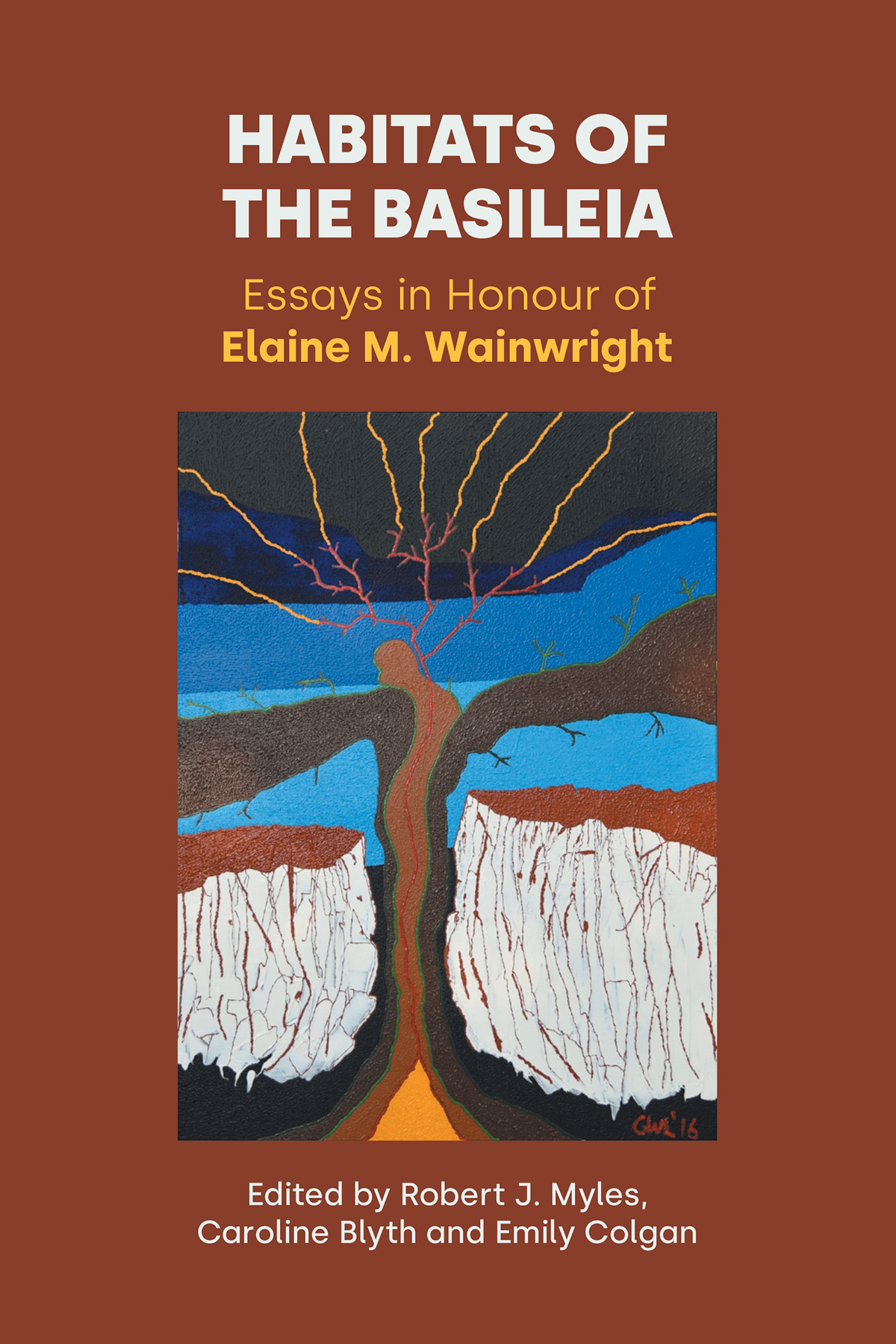

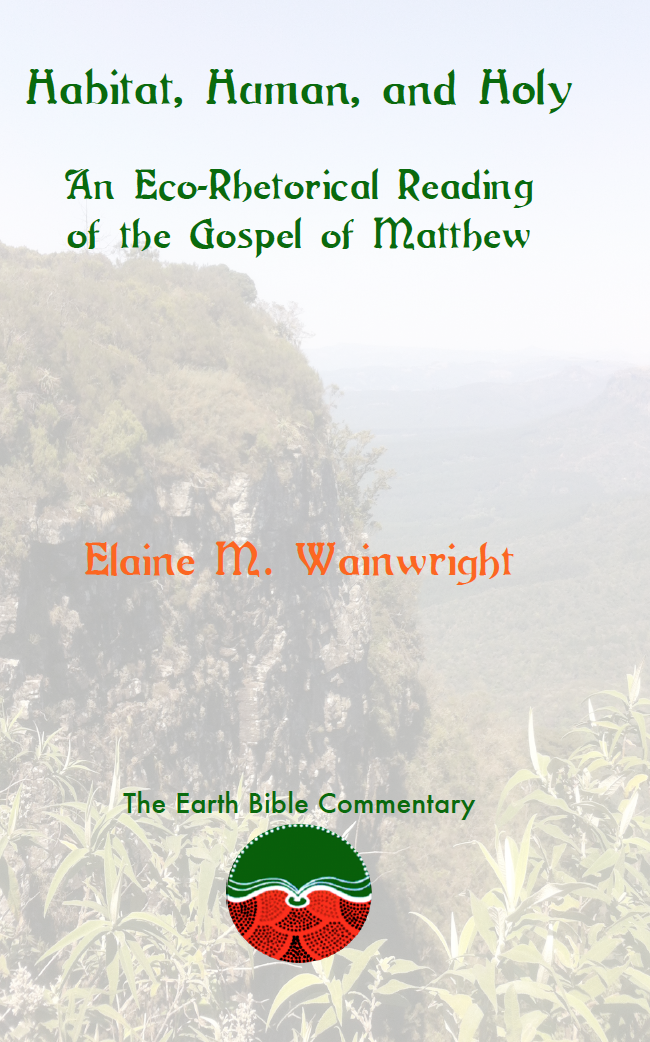
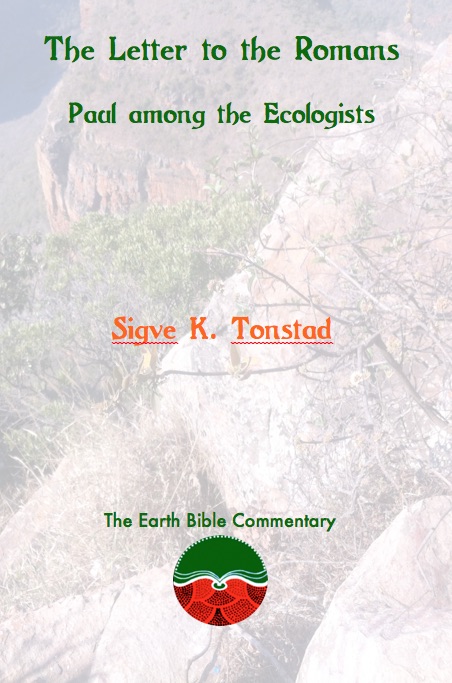

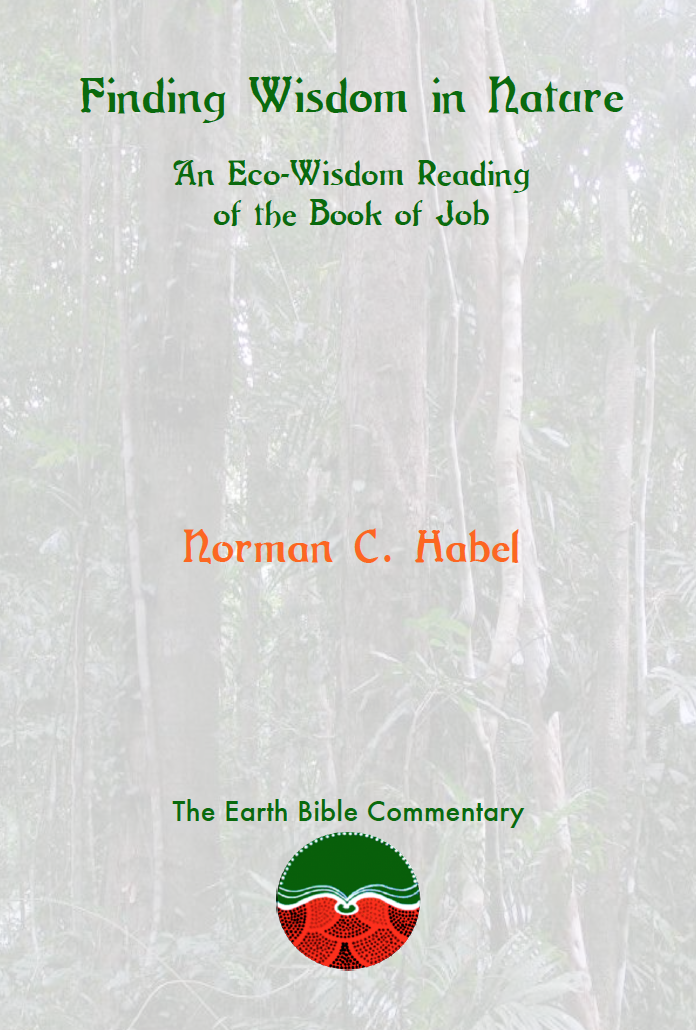

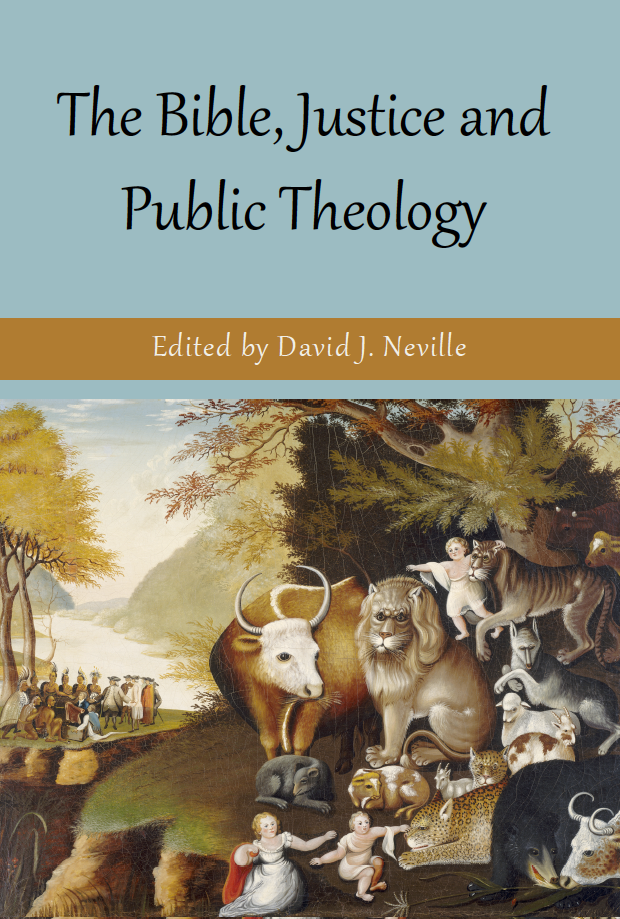
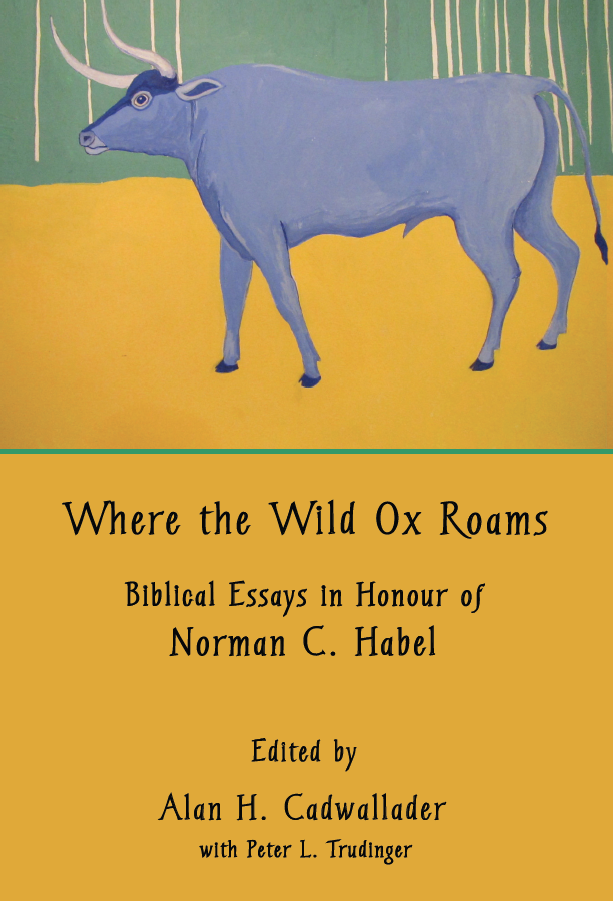
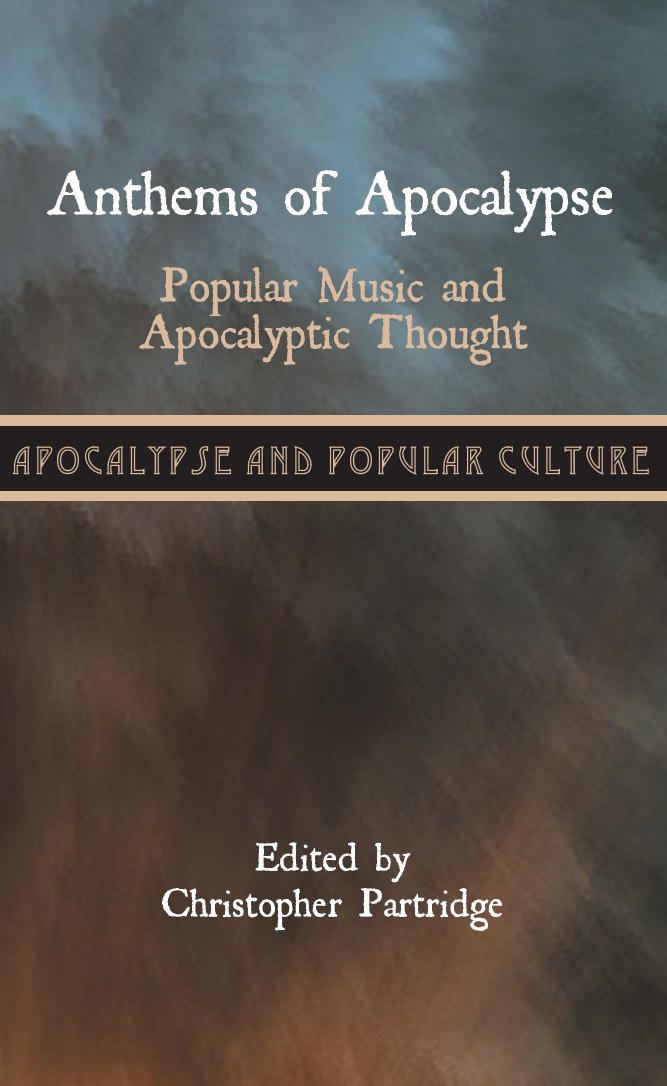

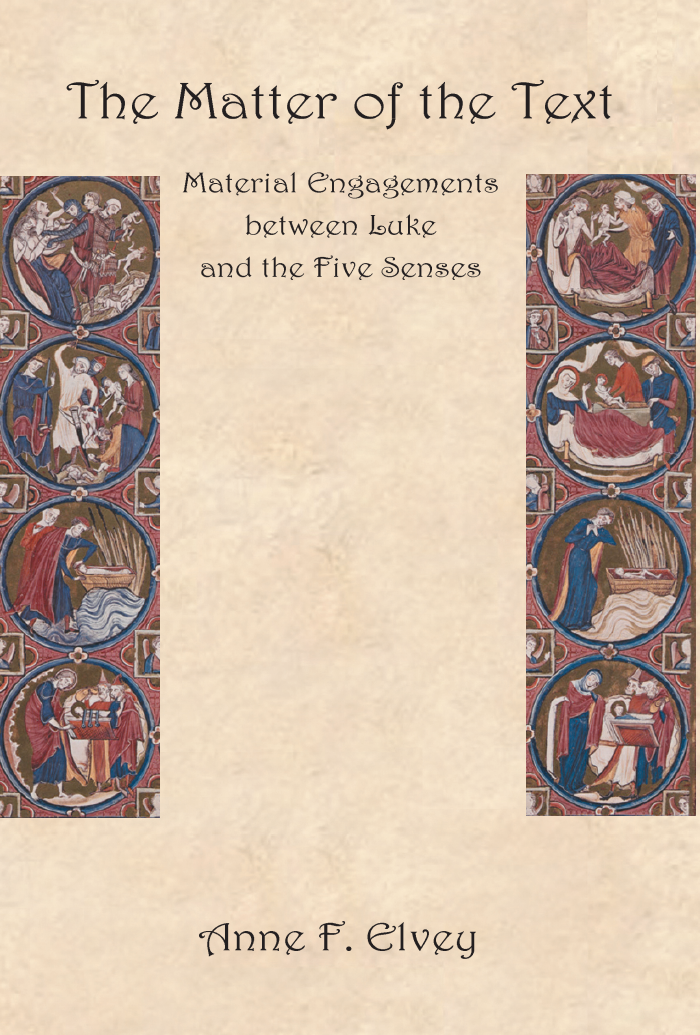

About Earth’s Child: An Ecological Listening to the Gospel of Luke
About Earth’s Child: An Ecological Listening to the Gospel of Luke